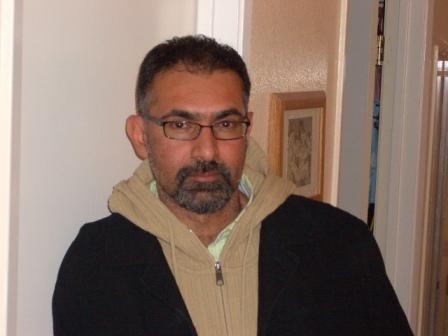An idea for a title came to me while reading Graham Greene's non fictional work by a similar name. Surely, the content would be dissimilar, not even pretentiously Naipaulian or Conradian in its observation. But the essence of the narrative would sum up the title: It is a search for the character of the people and their landscape.
After nearly three decades I will return to the land where it all began: mankind and my literary aspirations. Partly in search of material, partly to quell the pine for homeland, I desire that the journey and its encounters will inspire me; from it I wish narratives will emerge that form the basis of subsequent novels. For Graham Greene two feverish works resulted: The Heart of the Matter and The Burnt out Case.
Yet deep inside me lingers a tinge of ambivalence and apprehension from the enigma of arrival, the fear of rejection, and the sense of a stranger in homeland. Three decades is a long absence; it is a generation. With the knowledge that I have resided outside the country more than I have inside, can I still claim it as my homeland? What is my attachment to it, other than early memories, other than the idea that my forefathers traveled across the black waters of the
I have not entertained any preconceived ideas or expectations; instead, I have elected to travel with an open mind: let the altered landscape and its varied people awash, absorb and assault me with their sense and sensibilities, anger and joy, hope and despair, ambition and lassitude, progress and decrepitude.
What I don't wish to be is an apostate who has relocated and scourges with western sensibilities the escaped landscape and its people. Nor I wish to be sentimental and nostalgic about the loss of an era. Or an apologist. Yet it would be a disservice to narrative form without shedding light to injustice, without exposing hypocrisy, without ignoring unrest, corruption, and avarice of power and without reflecting the societal ills.
To comprehend and narrate peoples' stories, their travails, as citizens who have endured a gradual transformation of the opposing political and economical ideologies over three presidencies of Mwalimu, Mwinyi, Mkapa, and JK, one cannot escape from the underlying ethos and pathos. And in the country's hustling and bustling cities are people--young and old, sick and healthy, black, white, and brown--whose narratives of hope and despair, joy and sorrow, health and sickness, are waiting to be told.
We all have stories to tell: someone has to listen and chronicle them.
Sunday, December 16, 2007
In Search Of Character: An East African Narrative
Subscribe to:
Post Comments (Atom)

No comments:
Post a Comment